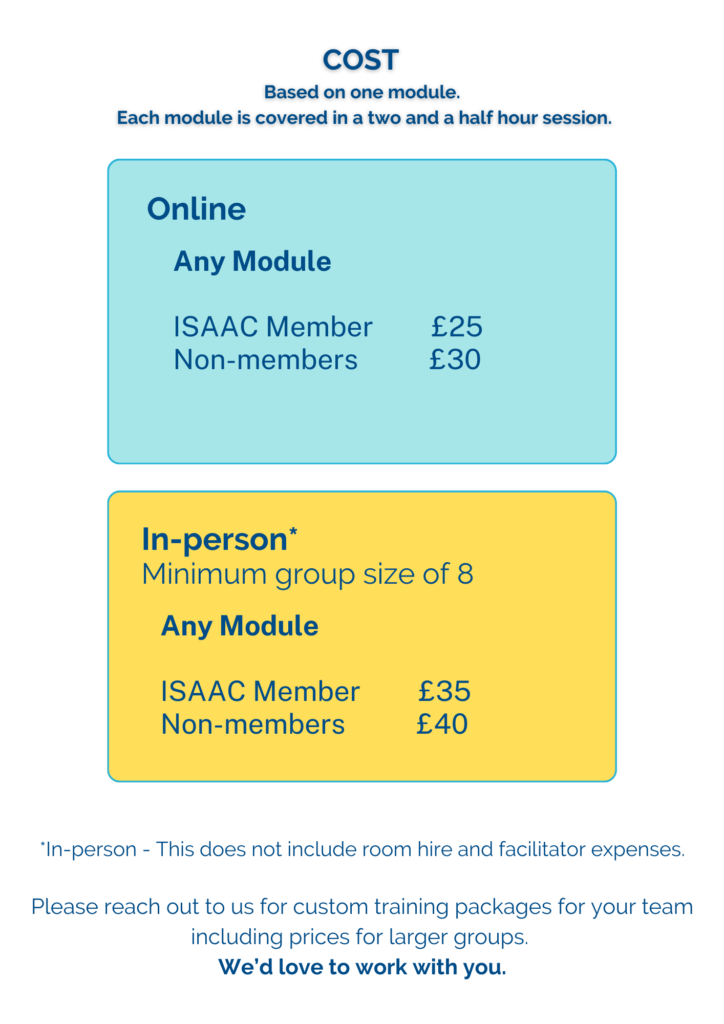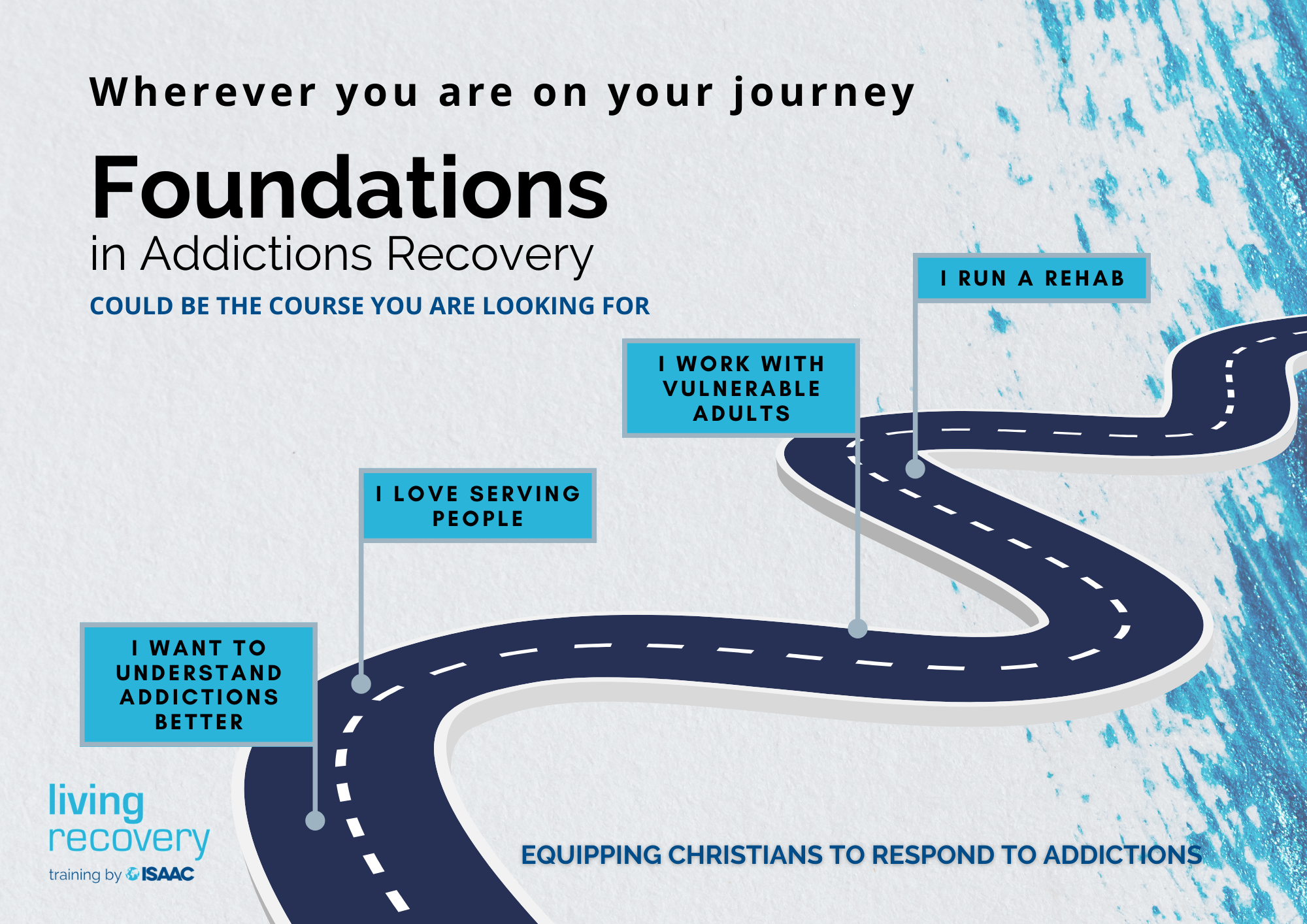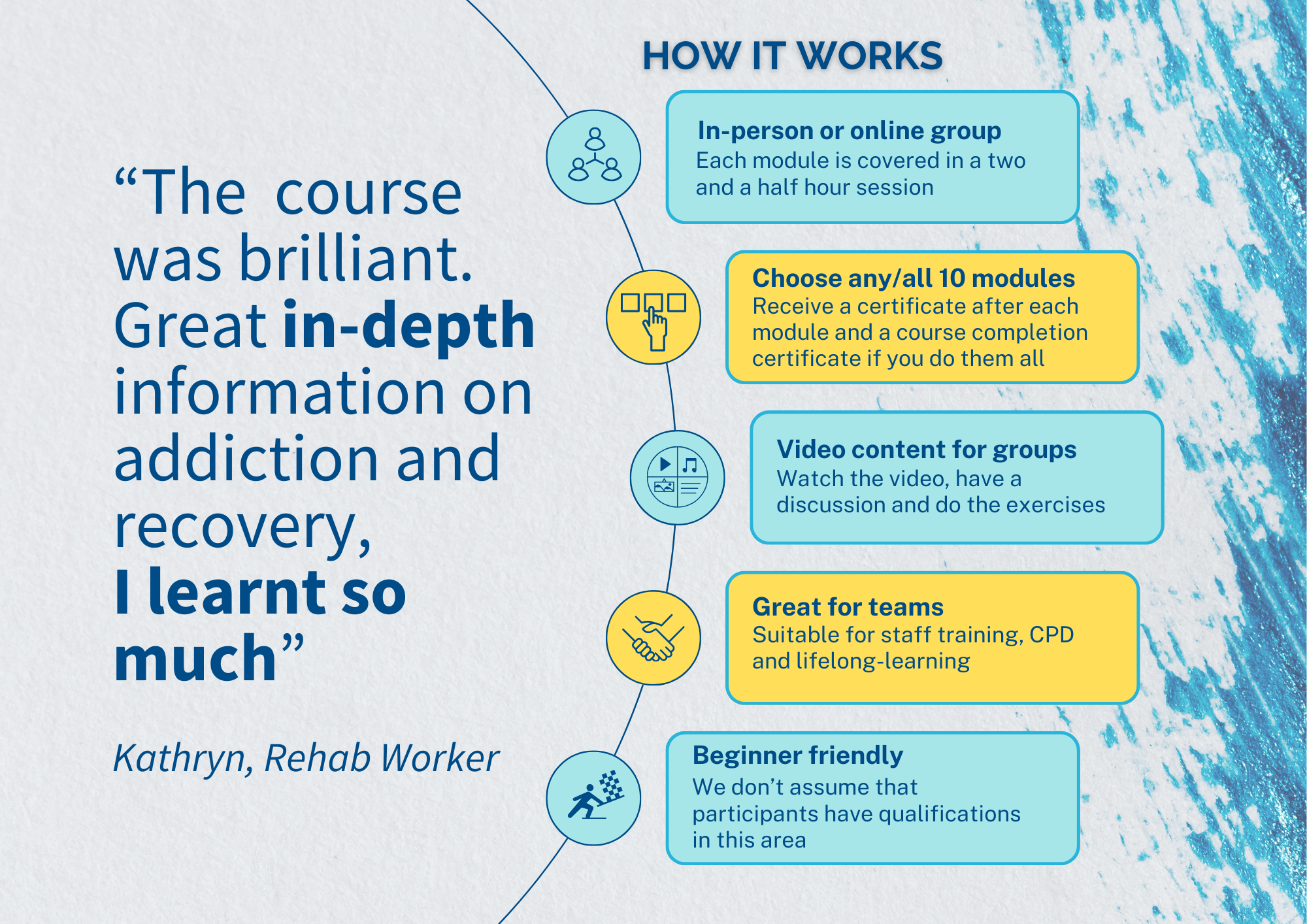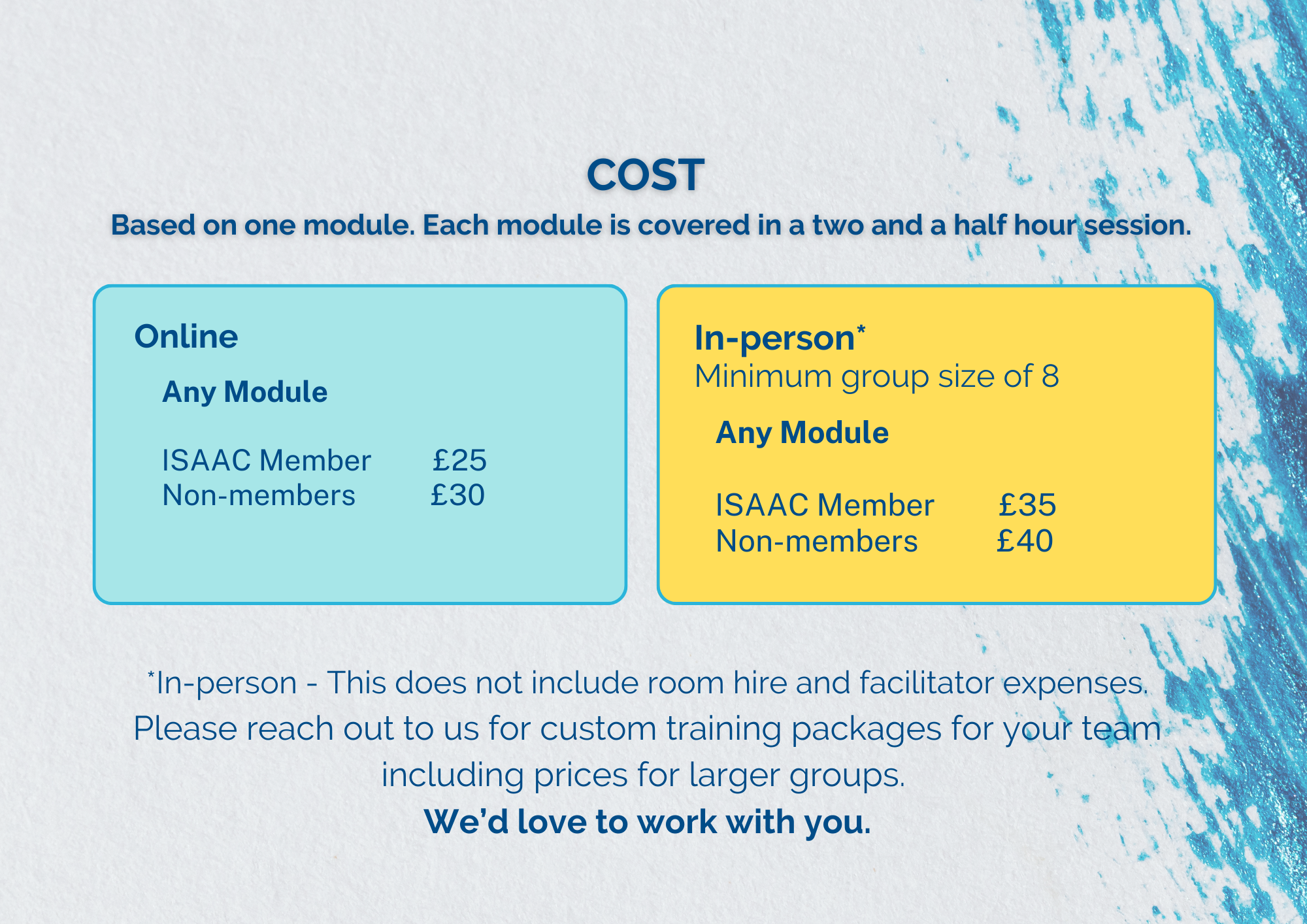As part of our mission to EQUIP Christians responding to addictions, ISAAC Living Recovery have developed the Foundations in Addictions Recovery Course
The 10 modules cover the basic knowledge, frameworks, theology and tools that Christians responding to addictions where they are, need to know.
Developed from a university certificate course, our Biblically-based training is delivered by our experienced trainer Mark Wood via video and the learning and group work is facilitated by our trained team. This course will give you the knowledge and tools to work competently, safely, ethically and effectively with people in addictions/recovery. We are excited to share it with you!
- Facilitated in-person or online groups (two and a half hours/session)
- Videos, discussion and exercises
- Access full course or any module
- No prior qualification needed
- Suitable for staff training, CPD and lifelong-learning
- Certificate awarded on completion of each module and full course
For more information and to ask about in-person group bookings please email training@isaac-international.org.
We’d love to connect with you.



